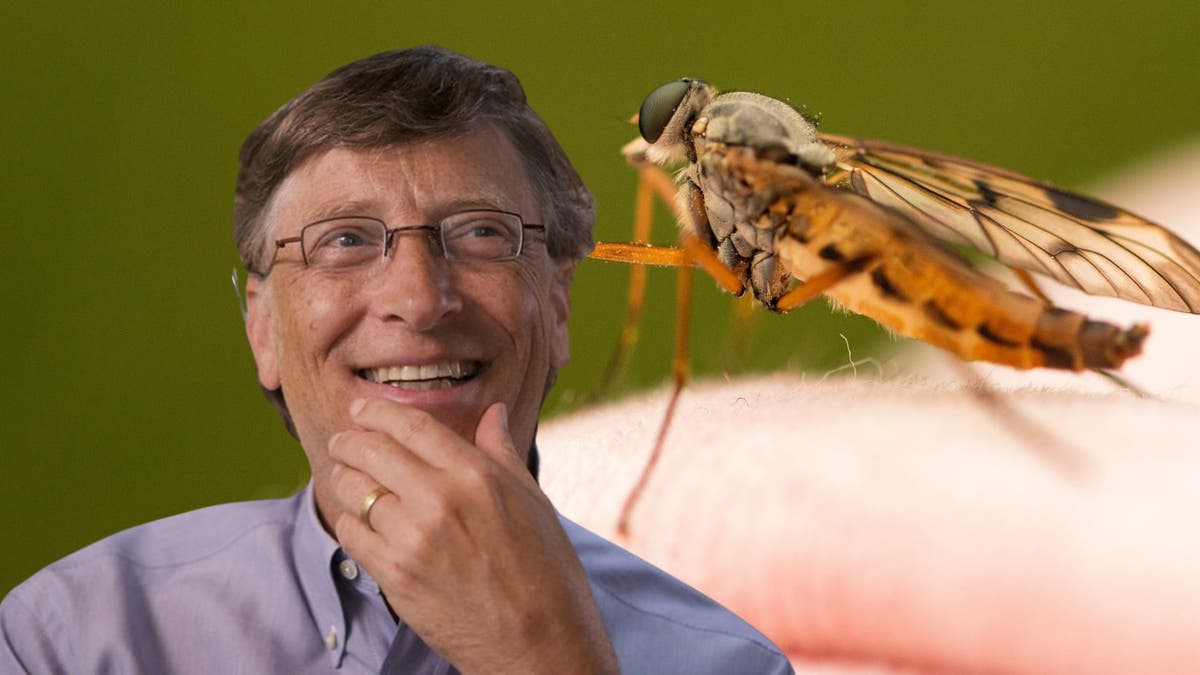
Bill Gates is an American entrepreneur, software developer, and philanthropist who co-founded Microsoft in 1975, revolutionising personal computing with the Windows operating system.
As one of the richest people in the world, he transitioned from tech mogul to philanthropist, focusing on global health, education, and poverty through the Bill & Melinda Gates Foundation. Gates is also known for his visionary thinking, impactful charity work, and shaping the digital age.

Time's up
So when the Gates Foundation got started, we made malaria one of our top priorities. Funding research to understand the disease, and how to create lots of new tools, and then taking those tools and actually getting them out, and saving kids’ lives. There is some progress. Overall, malaria deaths have fallen by 20%.
So how do people get infected with malaria? Well, it starts with the mosquito that actually has malaria, and when it bites a person, it spreads malaria to them. And then if another mosquito comes along and bites that person, then that mosquito is infected, and now that mosquito can infect another person. So it’s a cycle of going back and forth between people and mosquitoes.
During the peak of the malaria season in Africa, you have a massive number of mosquitoes that have malaria in them, and you have a massive number of humans that have the malaria in them. Worldwide, every year, you have about 250 million cases. And so our goal is to get that number down as much as possible. In fact, the goal is to get it all the way to zero malaria cases—to eradicate malaria.
Now, how would you go about that? Well, the first thing you want to do is you want to have fewer of these mosquitoes biting people and making them sick. And that’s where bed nets come in. They both block the biting and kill mosquitoes. You spray. Spray the walls of your hut. And that also kills mosquitoes. And we have a new tool coming, this gene drive, that will change mosquitoes so their populations go down.
As we apply these three tools, there are far fewer of these mosquitoes in the environment. Now, we can also drop the cases by protecting humans. Ideally, we’d get a long-acting vaccine. We don’t have that yet. Or another type of drug, the monoclonal antibodies. Instead of people being infected, you can say that they’re just completely protected, and so they’re outside this pool of infection, and that means that they’re no longer the source of the parasite going back into the mosquito. And so that is very, very helpful.
For the balance of the people, you want to find them, diagnose them, and treat them. If you do that well, every year you get fewer and fewer cases, and eventually, you get the numbers to be small enough that it all drops down—you literally have zero cases. For every year thereafter, you’re saving millions of lives.
- Foundation
- Definition: An organization established to provide funding and support for a specific cause.
- Example: “The Gates Foundation supports global health initiatives.”
2. Priority
- Definition: Something that is regarded as more important than others.
- Example: “Education is a top priority for the government.”
3. Infected
- Definition: When a disease-causing organism enters the body and causes illness.
- Example: “He was infected with the flu after being around a sick person.”
4. Spread
- Definition: To move and affect a larger area or number of people.
- Example: “The flu virus can spread quickly in crowded places.”
5. Cycle
- Definition: A series of events that are regularly repeated in the same order.
- Example: “The water cycle includes evaporation, condensation, and precipitation.”
6. Eradicate
- Definition: To completely eliminate something, often a disease.
- Example: “Scientists are working hard to eradicate polio worldwide.”
7. Protecting
- Definition: Keeping something safe from harm.
- Example: “Wearing sunscreen is important for protecting your skin from sunburn.”
8. Vaccine
- Definition: A substance used to stimulate the production of antibodies and provide immunity against a disease.
- Example: “The flu vaccine is available every year to help prevent the flu.”
9. Monoclonal Antibodies
- Definition: Lab-made molecules that act like antibodies to fight diseases.
- Example: “Monoclonal antibodies are being used to treat certain types of cancer.”
10. Parasite
- Definition: An organism that lives on or in a host organism and gets its food from or at the expense of its host.
- Example: “Malaria is caused by a parasite that is transmitted through mosquito bites.”
11. Diagnose
- Definition: To identify a disease or medical condition through examination.
- Example: “The doctor was able to diagnose the illness based on the symptoms.”
12. Treat
- Definition: To give medical care to a person or animal for an illness or injury.
- Example: “Doctors can treat infections with antibiotics.”
13. Environment
- Definition: The surrounding conditions in which a person, animal, or plant lives.
- Example: “Pollution affects the environment and the health of all living things.”
14. Massive
- Definition: Very large or extensive.
- Example: “The massive earthquake caused widespread damage.”
- What do you know about Bill Gates? What other things is he known for outside of Microsoft?
- What are your thought on Bill’s efforts to tackle Malaria?
- Would you take a Malaria vaccine?
- How big of an achievement would it be to eradicate Malaria?
- Are there any other diseases that you know of that have seen great progress in eradicating?
- Do you think there will be a time where humans have vaccines and treatment for all diseases?
- What do you think the future of modern treatment and preventative medicine looks like?







